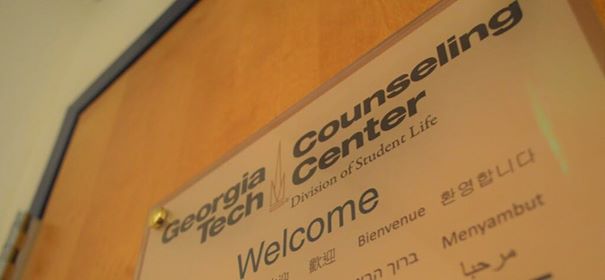On a large campus like Tech, when one member of the community gets hurt, the entire community feels its effects. Yet, suicide remains a stigmatized phenomena to occur on not only this campus, but college campuses everywhere.
According to the World Health Organization, suicide is the second largest leading cause of death among 15- to 29-year-olds. At Tech, the Division of Student Life and the Counseling Center together lead the Tech Ends Suicide Together initiative, a campus-wide effort to end suicide.
More specifically, the initiative is the aspiration to move from a culture of simply preventing suicide to eliminating it completely. In fact, Tech is one of the first colleges in the United States to implement such a “Zero Suicide” initiative.
The Zero Suicide Initiative began in 2012 as a national framework to reduce patient suicide. Tech adapted the components of the initiative to best serve the campus community.
The seven key components of Tech Ends Suicide Together are: lead, train, identify, engage, treat, transition and improve. The Question, Persuade, Refer (QPR) training sessions offered by the Counseling Center play a large role in this initiative. QPR is a nationally-recognized program that teaches people steps in preventing suicide
Twice a month for two hours, general campus QPR training sessions are hosted by members of the Tech community.
Since arriving on Tech’s campus in 2014, this popular method of “suicide prevention gatekeeper training” has helped open up a conversation about mental health.
“Suicide is on the rise nationally,” said Dr. Julia Rizzo, the Suicide Prevention and Crisis Response Coordinator at Tech. Most people who are experiencing thoughts of suicide don’t actually seek help, so “talking about mental health and suicide is part of everyone’s well being.”
The goal is to train people to identify the signs of suicidal ideation and intervene before it is too late. QPR educates the general public on how to ask questions to those in the midst of a mental health crisis, persuade them to get help and also refer them to the right resources.
The training teaches people to identify warning signs and even how to seek help for themselves by educating the public about common causes of these types of behaviors.
It is modelled after CPR training because it gives people the resources to help others even if they never plan on using them. However, in the instance when these resources are needed, they could potentially save a life.
“[The training] will likely come in handy in your life one day,” Rizzo said.
The most basic yet important skills that the training teaches is “How to ask the question out loud,” Rizzo said. “If you can’t ask that question, then finding someone immediately to ask that question,” referring to the simple yet impossible task of asking someone if they are having suicidal thoughts.
It is also important to realize that “asking the question is not going to plant the seed.” In this way, the training may alleviate some of the fears people have regarding honest conversations about suicidal thoughts and tendencies. It also addresses the stigma around asking others if they need help and support.
Rizzo finds that people often leave the QPR sessions feeling more equipped to support their peers in need of help. This addresses the “identify” and “engage” aspects of Tech Ends Suicide because it allows members of the Tech community to be more than just bystanders when they feel a person may need to seek help.
“Information is power. We can all be engaged in suicide prevention and a mental health conversation around campus and QPR can be the way to do that,” Rizzo said.
“It empowers people to think they can play a role in the community,” said Dr. Janice Harewood, the Assistant Director of Outreach and Wellness.
Not only can people attend sessions to learn the QPR method, they can also attend training to become a certified instructor of QPR.
Current QPR instructors vary from students, staff, members of GTPD, Counseling Center, faculty and more, so it truly is a community effort to spread awareness about suicide prevention.
The general campus sessions are open to individuals, but groups can also submit requests to spread awareness among their organization.
Sessions include general training, role play exercises and allotted discussion time.
A list of training dates and a list of certified QPR instructors for the Tech community are available online.
To find more information about the Tech Ends Suicide Together initiative and register for a QPR session, visit endsuicide.gatech.edu.
The QPR Institute also provides suicide prevention resources and courses on its website. Visit qprinstitute.com for more information.
If you or someone you know finds yourself in an emergency, call the National Suicide Prevention Hotline 1-800-273-8255.
